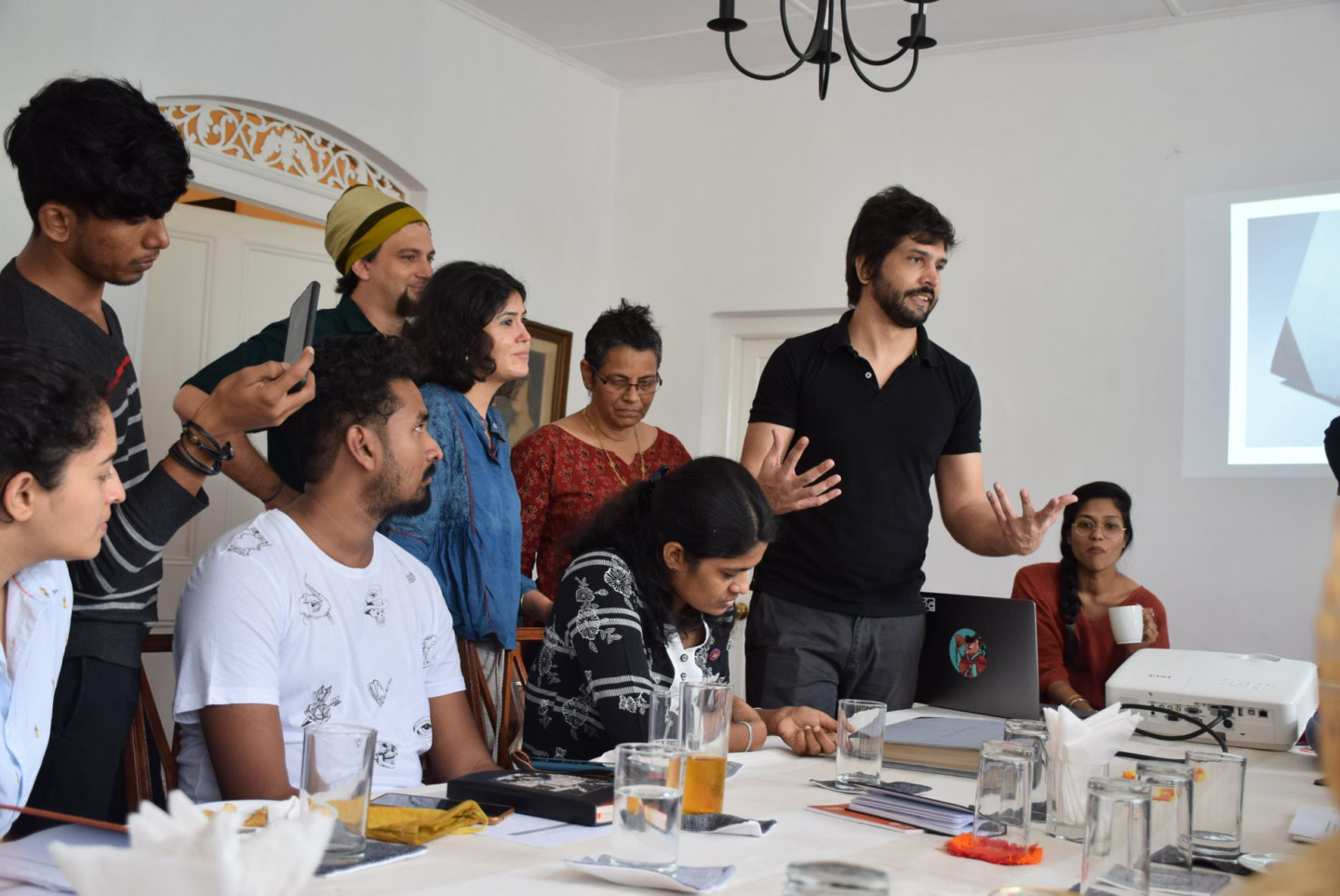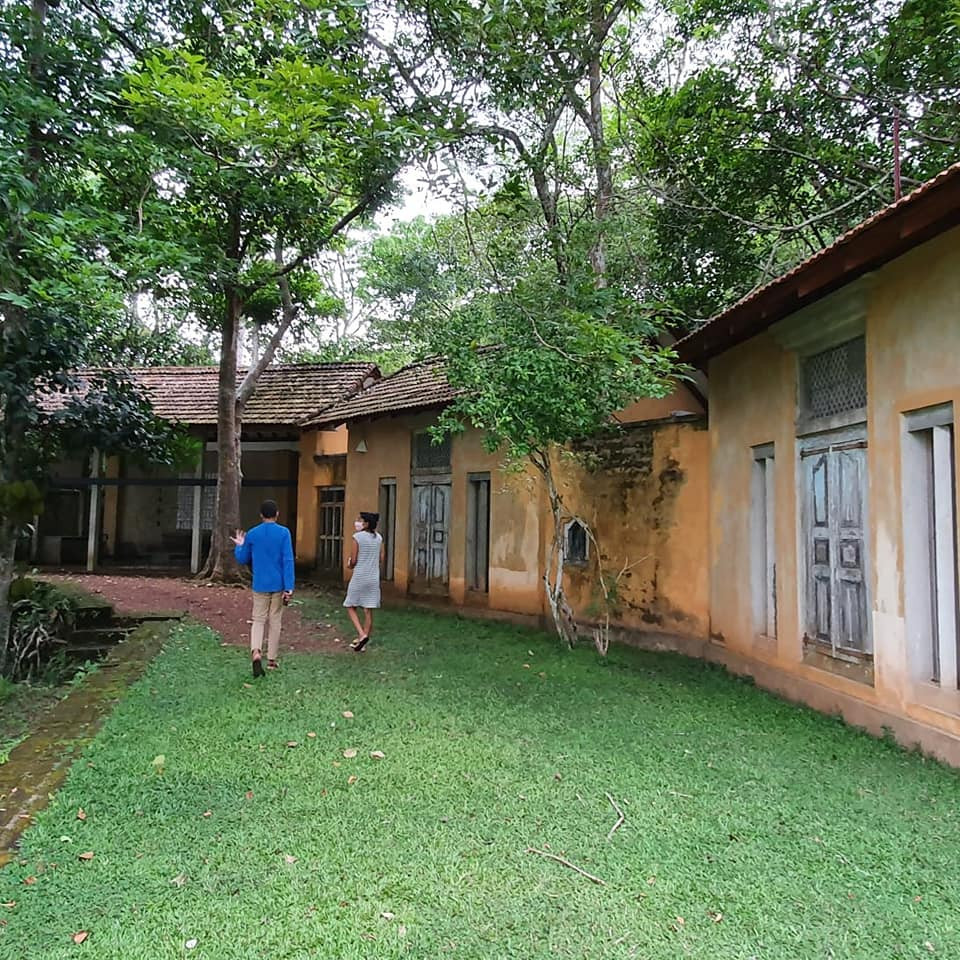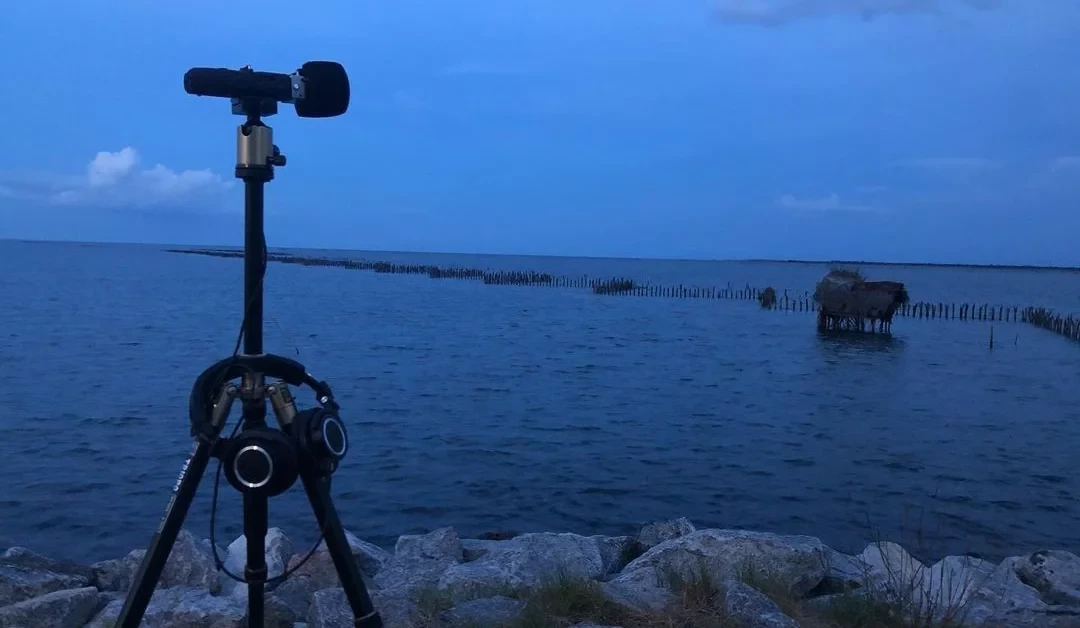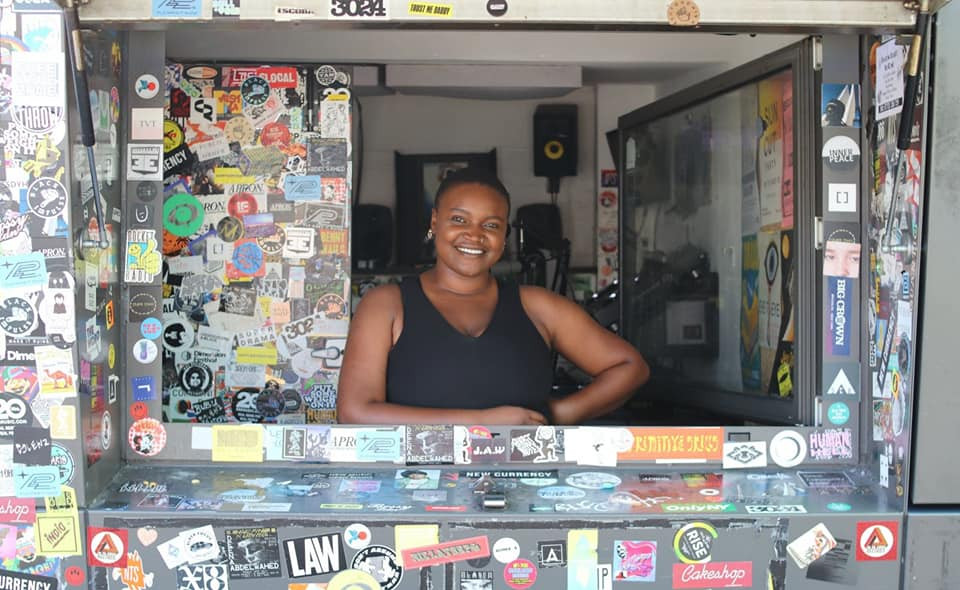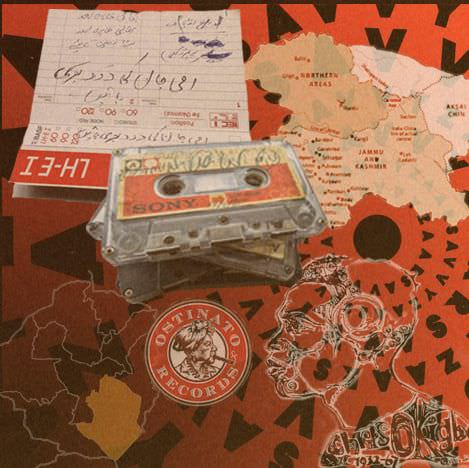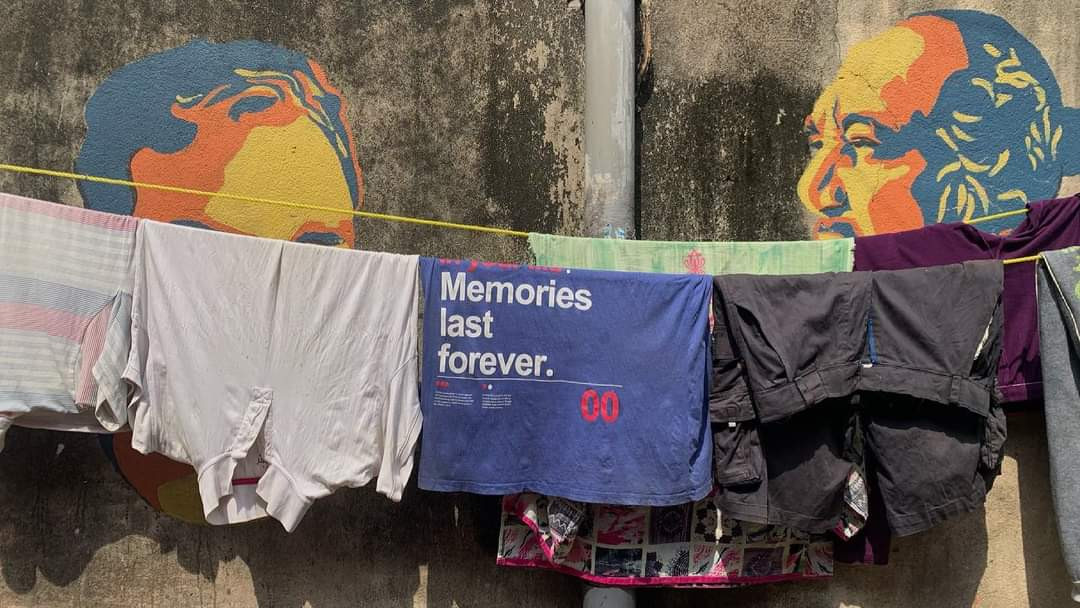The lead-up to the Colomboscope festival in 2022, including professional development workshops, in-tandem residencies across different regions in Sri Lanka and offline and online artist encounters.
Across Sri Lanka, artists face a constant struggle to maintain a professional livelihood in the cultural sector due to lack of public funding, accessible arts libraries and open-source archives. The festival Colomboscope offers opportunities for creative producers to have a horizontal exchange on creative questions as well as topics of socio-political urgency.
In the past seven years the strategic founding partnership with EUNIC has allowed Colomboscope to evolve as a vibrant and highly networked arts platform with an intellectual relevance. With the support of European Spaces of Culture the festival edition ‘Language is Migrant’ stepped further towards community involvement, utilizing culture and intergenerational dialogue for peaceful inter-community relations, creating a sustainable and context-responsive platform for the contemporary arts while connecting Sri Lankan artists to the european and global network.
Even before the outbreak of the pandemic, artists across Sri Lanka have faced a constant struggle to maintain a professional livelihood in the cultural sector due to lack of public funding. The festival was able to re-invent itself on a wider scale, tailoring to the community needs during the pandemic and enabled the local team to engage with a range of European and regional practitioners at an earlier stage and bring about further networking, field research and context-specific cultural activities through various artistic mediums.
Bringing together contemporary cultural practices that investigate local and global phenomena, works being produced during the project ranged from film, installation, creative publishing and performance poetry. Local audiences can see the developments of the artworks through regional open studios, and they also featured in Colomboscope 2022.
Tandem residencies
This initiative focused on artistic research, site-responsive production and durational approaches within contemporary cultural practice through month-long residencies for artistic producers hosted in different coastal and rural regions of Sri Lanka. Invited local and international artists worked closely with community mediators and practitioners exploring aspects of social memory, oral histories, informal pedagogy, sonic archives and traditional arts. Each residency included an Open House as part of contextualizing cultural processes for local audience groups as well as highlighting the process-led and migratory iterations of Colomboscope.
In the first tandem residency, Pakistani artist Omer Wasim and Sri Lankan artist Thisath Thoradeniya travelled across the Jaffna peninsula researching botanical species associated with memory, the afterlife of conflict, as well as colonial legacy and social histories of salt in Kandy. They met with environmentalists, horticulturists, artists and writers, eventually making their way to Hiriketiya on the South coast where the residency culminated with an open house. For the second residency in the North, Berlin-based Afghani artist Aziz Hazara together with Batticaloa-based artist Rupaneethan Pakkiyarajah developed their production process by documenting sonic traditions and rituals, and journeying through coastal areas. Their research focused on landscapes as testimonial sites, internal displacement, and terrestrial conflicts in Sri Lanka and Afghanistan.
South Asian multilingual media platform Roar LK conducted interviews with Omer Wasim and tandem Aziz Hazara and Rupaneethan Pakkiyarajah.
Professionalisation workhops
A series of workshop for local emerging artists and creative producers are part of the project in the context of the actions for the professionalisation of the local cultural sector across Sri Lanka and South Asia.
The festival Colomboscope offers opportunities for creative producers to have a horizontal exchange on creative questions as well as topics of socio-political urgency.
Re-Tooling Workshop #1: Hacking the System (October 2019)
The workshop took place in October 2019 in the central hills of Sri Lanka. Sessions focused on working conditions for contemporary practitioners, spatial practice as well as key principles of arts publishing. A reading corner with several catalogues, artist monographs and self-published zines activated conversations between sessions. This participating young artists and photographers has since remained in dialogue with the Colomboscope team and invited curator Anushka Rajendran.
Forensic Approaches to Visual Arts Workshop: 'Politics of Listening' led by Lawrence Abu Hamdan (June, July 2020)
The workshop was organised for a small group of artists and collaborators in Sri Lanka invested in learning from forensic approaches to the visual arts and extending inquiries at the cross-section of media, investigative tools and sonic practices as well as documenting histories of repression and dissent through acts of witnessing. Between physical and virtual interactions, the sessions turned out to be considered exercises in sharing ideas traversing political geographies, ongoing research processes, and cross-disciplinary learning.
As most of us in the workshop were from an independent artist collective that work in a loosely collaboratively way, and have shared interests, it was very helpful to be part of something like this together, which strengthened and gave more substance and direction to our collective work.
Bookmaking and self-publishing workshop with artist and publisher Jason Dodge (January 2021)
This workshop was organised together with publisher Jason Dodge, who shared and discussed his experiences and techniques of bookmaking and publishing with a diverse audience from all around the world. From how to maximise offset formats, to folding thousands of pieces of paper by hand, and why he started his poetry imprint “Five hundred Places” in 2012. Participants were invited to share their own projects and ideas, creating an environment of mutual exchange. The session took place in a hybrid format, for a diverse audience from all over the world and gave the participants a platform to show their on-going work and provided practical solutions to various questions in relation to the participants’ work.
Spoken Word Poetry, Multi-Lingual Poetry, Mental Health and Writing Practices with literary and sound artist Belinda Zhawi (April 2021)
The online workshop with UK based Zimbabwean spoken word artist, poet and educator Belinda Zhawi led participants on a writing journey exploring the personal poetics of language, memory and ancestry, drawing from broader themes in Belinda Zhawi’s own writing. There was an opportunity for discussion and to read poems by Safia Elhillo, Theresa Lola, Carolyn Forche, Ntozake Shange and more as stimulus for the participants’ own writing. Belinda Zhawi directed the participants with prompts through their writing process. The participants described especially these prompts as thought-provoking and inspiring. Participants were surprised by the minutia that emerged from the note-taking process. All workshop participants stated that they would like to participate in a similar event again. Further the majority of the participants agreed that the event met or exceeded their expectations and that Colomboscope has created a safe space to explore “emotional terrain” and “share in the intimacy of memory”. Some of the workshop participants shared the poetry that emerged from the workshop on their social media channels.
Colomboscope has created a safe space to explore emotional terrain and share in the intimacy of memory
Artist encounters
Artist Encounters is an on-going series of informal virtual conversations between artists who arepart of the 2022 edition of Colomboscope. The series was conceived as one way to nurture a sense of community among participating artists and continue dialogues among creative practitioners especially as limitations related to travel continue and most borders remain closed intermittently.
The digital gatherings created a space in wich Sri Lankan artists came in contact with artists from around the world. Participants are given the chance share their practises and find overlapping methods or areas of interest. Although such exchanges are unable to replace the networking and bond-building that usually takes place during a festival. The format made a first step towards building a community in which cultural knowledge resources are circulated and shared between Sri Lanka, Europe, South Asia and globally.
We Are From Here
The Community Project 'We Are From Here' focused on religious tolerance, minority history telling and inter-faith solidarity, aiming at archiving oral testimonies and objects witnessing and exemplifying the urban trans-formation process and corresponding displacement in the multiethnic neighbourhood Slave Island (Kompannavidiya). The focus of this activity shifted towards the group’s experiences in relation to the current pandemic situation, as the community of Slave Island has been Covid-19 high risk zone and put under a strict lockdown for several weeks.
The project collected oral testimonies, objects and memoirs from the multi-ethnic neighborhood Slave Islandto bear witness to and collectively assemble ways to map the rampant transformation, commercialization and corresponding displacement of this neighborhood. The weekend programme connected We Are From Here with more community members who will further contribute to this archive.
The participating project team members perceived the knowledge exchange with the group of community members (5 English speaking, 6 Sinhala speaking, 4 Tamil speaking) who participated in the weekend programme as their “highlight of this year's project”.
#HeldApartTogether
In response to the Covid-19 reality, the project team launched a series of small online art projects under #HeldApartTogether and #EssentialServices on all Colomboscope (social) media channels.
The online series sustained artistic production during the early phase of the pandemic through small scale grants. The activity was one strategy of maintaining vital connections with the broad network of cultural practitioners in different regions of the island as well as regular discussions within South Asian cultural platforms and creative partners in Europe.
A Thousand Channels
A Thousand Channels is a series of online radio episodes and collaborative programming featuring conver-sations, poetry, specially commissioned sound works and guest radio projects led by Syma Tariq which will be a vibrant and polyphonous platform leading up to and during the Colomboscope festival. The first episode was launched on 17 March 2021.
The four-part online radio programme features conversation, poetry, music, specially commissioned sound works and guest radio projects in the lead-up to Colomboscope, and also formed part of the festival’s listening space in Colombo. The works, reports and compositions presented here coalesce around the festival theme ‘language is migrant’, encompassing various aural modes and listening practices across multiple Indian Ocean territories and beyond, sounding out their diasporic fringes and linguistic and musical enclaves.
Colomboscope as European Space of Culture
The jury was of the opinion that the project offers an innovative way of combining cultural disciplines in order to promote values of freedom and cohesion and was convinced of the clear project delivery plan as well as the elaborated relevance to the local context. The project is based on local needs and experience, is co-developed and co-owned by partners with clear goals to reaching out to a number of smaller local partners and is built on active and inclusive roles of all the partners. Even though the project is based on an existing festival, the selection committee saw ample potential of creating new partnerships and reaching out to new and vulnerable audiences. The committee considered the project as a potentially strong model to use culture as means for promoting freedom and understanding.
Colomboscope is one of the very rare platforms to bring together people from all artistic fields. Taking part provides a springboard to more partnerships, across the island.
Model of collaboration
The collaboration leans on a long-grown structure: the collaboration evolved over seven years. Programming and curating are led by a local project management team (Fold Media Collective). The establishment of a local team has strengthened the permanent structure of the project. EU partners give directions, advice, resources, and security in a challenging political context. EUNIC funding gives stability, allowing the project to expand geographically and throughout the year. The local team briefs all partners in regular meetings on outreach, venues, design, curation. The EU partners give advice and share resources. Local partners and EU partners are seen as equal.

